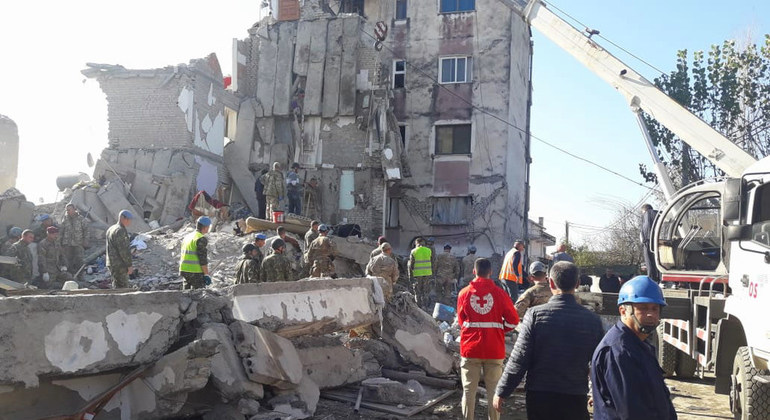The 6.4 magnitude quake struck coastal areas early on Tuesday, with a state of emergency declared for the city of Durres and the capital, Tirana.
“We have been on the ground from the first moment of this disaster, working with health authorities to save lives”, Dr Piroska Östlin, WHO interim Regional Director for Europe, said on Wednesday.
WHO staff have been deployed, and the country team travelled to Durres to assess health needs alongside local and national health authorities.
Hundreds of people are receiving medical assistance at hospitals in the affected area, which reportedly have not suffered significant damage.
Dr. Raul Gonzalez-Montero, WHO Representative in Albania, commended the Medical Emergencies Coordination Centre for its response.
“I personally went to visit affected areas and health facilities where health personnel are working around the clock to treat trauma and other injuries, and they are coping well”, he said.
WHO explained that in the aftermath of an earthquake, priority is on saving lives from trauma and injuries from building collapse.
Following this phase, it is critical to monitor the potential risk of communicable diseases, particularly in areas affected by overcrowding.
There is also a need to address post-traumatic mental disorders and continue the provision of care for chronic conditions, with the focus eventually turning to recovery and rehabilitation.



